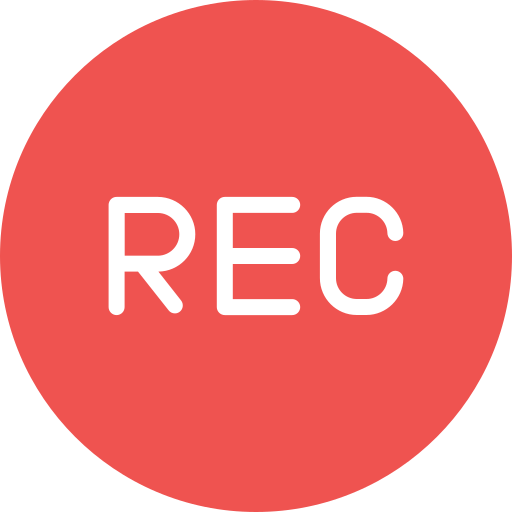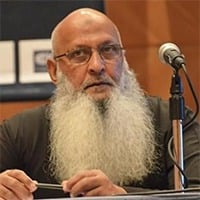ADDICTION COUNSELLING : ISLAMIC MODEL - LEVEL 1 (Self-Paced)
Course

About The Course
This course aims to develop a foundational understanding of the nature and scope of addiction in contemporary society. It will examine the physical, social, psychological and spiritual harms caused by addiction to pharmacological substances and addictive activities. It will increase your knowledge and understanding of the therapeutic interventions of addictive behaviours from an Islamic perspective.
This foundational online Certificate course is suitable for those in health and social work areas, teachers and those involved in pastoral work.
At A Glance
 12 Recorded Sessions
12 Recorded Sessions  8 Graded Module Assessments
8 Graded Module Assessments  20+ VIDEO HOURS
20+ VIDEO HOURS  Videos Access for 1 Year
Videos Access for 1 Year  Access to Mobile App
Access to Mobile App  Live Q&A
Live Q&A  Digital Certificate
Digital Certificate  Live Sessions: 3
Live Sessions: 3
3 Complimentary live sessions for providing real-time interaction and instructor support.
Live Session Schedule
- Nov 16, 2024: Introduction to the Course
Time: 4:00 PM – 5:00 PM (London) - Dec 14, 2024: Live Q&A
Time: 4:00 PM – 5:00 PM (London) - Jan 11, 2025: Conclusion Session
Time: 4:00 PM – 5:00 PM (London)
Enroll Now
- Course Launch Date : 16th November 2024
- Course Fee:
Pay in Full:£99.99£49.99
Al Balagh Scholarship
AlBalagh Scholarship is available for learners who cannot afford the fee. Learn More and Apply
Course Overview
Multiple institutions have been set up to address the need of treating substance misuse either by the NGOs or private bodies. There are various treatment approaches that have been tried and tested, such as modern, traditional, and an Islamic approach. The Islamic approach to addiction counselling combines the spiritual and pharmacological and psychosocial approaches to treat addiction.
This foundational course will introduce the students to the Islamic perspective of Addiction and therapeutic interventions. The unique focus of this study is based on the historical, sociological and cultural perspectives of addictive behaviours.
Course Aims
- To introduce participants to addiction counselling from an Islamic perspective, exploring spiritual, social, and therapeutic interventions.
- To develop knowledge on the interplay between psychological, sociological, and cultural factors contributing to addiction.
- To examine practical strategies for managing substance abuse and non-pharmacological addictions through Islamic psychotherapy.
- To equip students with frameworks for assessment, risk evaluation, and Islamic intervention strategies.
- To foster sensitivity and compassion for individuals struggling with addiction and empower students to apply these insights in real-world contexts.
Who Should Enroll?
- Health Professionals: Psychologists, therapists, counsellors, and social workers engaged with addiction treatment.
- Teachers and Educators: Seeking to understand the nuances of addictive behaviors in youth.
- Pastoral Workers and Imams: Supporting individuals dealing with addiction from a spiritual perspective.
- Community Leaders and Volunteers: Involved in rehabilitation programs or social outreach.
- Students and Lifelong Learners: Interested in Islamic psychology and addiction therapy.
Why Enroll?
- Expert Guidance: Learn from Professor Dr. Shaykh G. Hussein Rassool, a leading scholar in Islamic psychology and addiction counselling.
- Unique Islamic Perspective: Explore addiction treatment approaches rooted in Islamic teachings, integrating spiritual, social, and therapeutic methods.
- Practical Frameworks: Gain practical tools for assessing and managing addiction cases with cultural sensitivity.
- Flexible Learning: Access 20+ hours of recorded video content and 12 modules at your convenience, with a one-year access period.
- Live Interaction: Engage with instructors through three live sessions, including Q&As and final discussions.
- Certification: Receive a certificate upon course completion, enhancing your professional qualifications.
Course Features
- Start Date: Saturday, 9th November 2024.
- Course Fee: £99.99 (Discounted to £49.99) – Pay in Full Only.
- Format: Online recorded and live sessions.
- Total Video Hours: 20+ hours.
- Graded Assessments: 8 assessments to evaluate understanding.
- Live Sessions: 3 scheduled sessions for real-time interaction and support.
- Access Duration: 1 year.
- Certificate: Issued upon successful completion.
Learning Objectives
- Recognize and Analyze Addictive Behaviors: Understand the nature, history, and cultural perspectives of addiction.
- Apply Assessment Frameworks: Implement tools for risk assessment, screening, and intervention planning.
- Understand Pharmacological and Psychosocial Interventions: Identify effective methods for managing addiction using Islamic, pharmacological, and psychosocial approaches.
- Explore Islamic Psychotherapy: Learn how Islamic principles guide treatment and rehabilitation efforts.
Learning Outcomes
- Develop a greater sensitivity and acceptance of individuals struggling with addiction problems.
- Examine the basic nature of addictive behaviours.
- Critically examine the historical, sociological, and cultural perspectives of addictive behaviours.
- Critically evaluate the theories and approaches of addictive behaviours based on existing evidence.
MODULES
Module 1
Introduction to Islamic Addiction Counselling & Nature Of Addiction Attitudes
Module 2
Historical Perspectives Of Addiction
Module 3
Addiction From An Islamic Perspective
Module 4
Theories And Approaches To Addiction
Module 5
Substance Misuse And Dependence
Module 6
Non-Pharmacological Addictions I (Cannabis Addiction)
Module 7
Non-Pharmacological Addictions II (Nicotine & Tobacco Addiction)
Module 8
Non-Pharmacological Addictions III (Nicotine & Tobacco Addiction)
Module 9
Gambling Addiction
Module 10
Co-Addiction, Self-Help And Family Support
Module 11
Islamic Psychotherapy With Addiction I
Module 12
Internet & Social Network Addiction
Here is the course outline:
Welcome Aboard: Course IntroductionWelcome Aboard: Course Introduction |
LMS OrientationLMS Orientation |
FAQsFAQs |
Complimentary Live Sessions |
Live Session Recordings |
Introduction Webinar--Addictive Behaviours The Disease and Its Cure from Islam. |
L1- Introduction to Islamic Addiction Counselling & Nature Of Addiction Attitudes |
L2 - Historical Perspectives Of Addiction |
L3 - Addiction From An Islamic Perspective |
L4 - Theories And Approaches To Addiction |
L5 - Substance Misuse And Dependence |
L6 - Non-Pharmacological Addictions I |
Mid-Course Survey |
L7 - Non-Pharmacological Addictions II |
L8--Assessment, Medical And Pharmacological Interventions |
L9-- Psychosocial Interventions |
L10 - Co-Addiction, Self-Help And Family Support |
L11 - Islamic Psychotherapy With Addiction I |
L12 - Internet & Social Network Addiction |
L13 - Interactive Case Studies (Final Session) |
Final Exam |
Post-Course Survey |
Completion
The following certificates are awarded when the course is completed:
 |
COA-Addiction Counselling: Islamic Model (Self Paced)-2024 |




(3).png?lmsauth=401bc9a751a1384a01d518931aef05980231a962)
.jpeg?lmsauth=20c38b738ae72dadfffc864a114a427f837cf07e)
